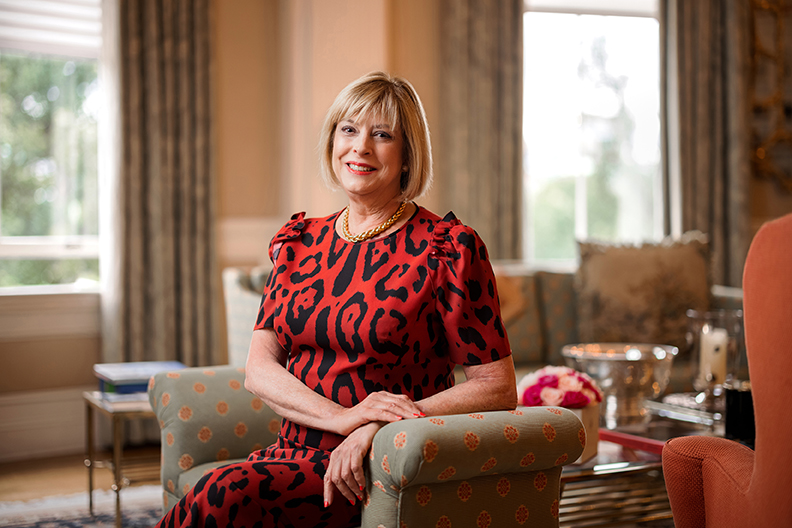“The scientists at Duke are changing lives and outcomes.” - Carol Deane

A Gift to Grow on
In 2005, when investment banker Disque D. Deane T’43 endowed the Disque Deane University Professorship, he had already endowed a neurobiology lab at Duke. He felt that funding a professorship was a natural next step.
School of Medicine Board of Visitors Chair Carol Deane remembers that her late husband was motivated by an intellectual curiosity about science, including neurobiology, as well as a general concern about the devastating potential of neurological diseases. “Although he was a very successful investment banker, he was always reading scientific journals and magazines,” Deane says. “Disque was somebody who used to read the tax code and find it interesting. He had that kind of mind.”
At the time that the professorship was endowed, what is now the Duke Department of Neurology was a division. “I think it was his hope that funding a professorship would help Duke get the impetus to start a department of neurology,” she says. “He was very aware that as populations age, that field is becoming more and more important to the general population.”
“Duke University was very important to him,” Deane says. “He felt that he had a great education there, and he wanted to give back.” In addition to supporting Duke University through his personal philanthropy, Disque Deane also served as a valued member of the Duke University Board of Trustees from 1983 through 1989.
Carol Deane has met with Richard O’Brien, MD, the current holder of the professorship, on several occasions. “He’s brilliant, he’s thoughtful, and every time I have the opportunity to spend time with him, I learn something new,” she says.
Like her late husband, Deane feels strongly that endowed professorships fuel the research breakthroughs that will improve lives. “Government grants for any kind of research happen only when the scientists are about 90 percent of the way to making a breakthrough discovery,” she says. “By funding a professorship, you’re helping to support a basic science lab to get to that point. It’s also the way the university can attract and keep top talent. The scientists at Duke are changing lives and outcomes. They’re setting standards for new ways to treat disease and pathologies, and I think that’s really important.”